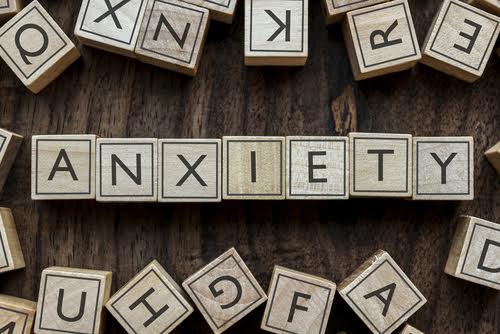To help a teen with anxiety, it’s crucial to listen without judgment, encourage honest communication, and show empathy. Key steps include educating yourself on anxiety, promoting a supportive home environment, and seeking professional guidance. Patience and understanding from parents can significantly aid in a teen’s journey to manage anxiety effectively.
Discovering how to support a teen with anxiety can feel overwhelming for parents and caregivers.
The key lies in understanding the issue, showing empathy, and taking proactive steps to assist. You can make a significant difference by recognizing the early signs, creating a supportive environment, and exploring the benefits of teenage anxiety treatment at a teen treatment center.
This article explores how to help a teen with anxiety.
How to Help a Teen with Anxiety
Teen anxiety is more than just a phase; it’s a condition that can significantly impact a young person’s life.
Recognizing the signs early is crucial for providing the necessary support. Anxiety in teens can manifest as irritability, withdrawal from activities they once enjoyed, or an overwhelming sense of worry.
By addressing these signs early, parents can help prevent their teen’s anxiety from escalating. Understanding and support from loved ones are vital.
Here’s how to help a teen with anxiety.
Recognize the Signs of Teen Anxiety
Understanding how to help a teen with anxiety begins with recognizing the signs. Teen anxiety can manifest in various ways, including excessive worry about everyday activities, avoidance of social situations, changes in sleeping patterns, or unexplained physical symptoms like headaches or stomachaches.
Teens might also exhibit a noticeable decline in academic performance or lose interest in activities they once enjoyed.
It’s essential to observe these changes without immediate judgment, acknowledging that these behaviors are not just typical teenage moodiness but could be indicators of anxiety.
Early recognition is crucial in providing timely support and guiding them toward appropriate help.
Some of the most common signs of teen anxiety include the following:
- Excessive Worrying: Constant, intense worry about everyday activities, school performance, or social interactions that seems disproportionate to the situation.
- Avoidance Behaviors: Avoiding social situations, school, or activities they previously enjoyed due to fear or discomfort.
- Changes in Behavior or Mood: Sudden changes in behavior, such as increased irritability, mood swings, or aggression that are not typical for the teen.
- Physical Symptoms: Unexplained physical symptoms like headaches, stomachaches, muscle tension, or fatigue.
- Sleep Disturbances: Difficulty falling asleep, staying asleep, or experiencing nightmares, leading to significant changes in sleep patterns.
- Decline in Academic Performance: Noticeable drop in grades or school performance, possibly due to difficulty concentrating, excessive worrying about failure, or avoiding school altogether.
- Withdrawal from Friends and Family: Spending more time alone, withdrawing from social interactions with friends and family members.
- Changes in Eating Habits: Significant changes in appetite or eating patterns, which could include eating too much or too little.
- Restlessness or Being Easily Startled: Appearing constantly on edge, jumpy, or experiencing an inability to relax.
- Expressions of Hopelessness: Talking about feeling hopeless, overwhelmed, or expressing negative thoughts about themselves or their future.
Encourage Open Communication
Encouraging open communication is pivotal in understanding and supporting a teen with anxiety.
Create a safe, non-judgmental space for your teen to express their feelings and concerns.
Start conversations about their day-to-day experiences, listen actively without rushing to solve their problems, and show genuine interest in what they say.
This approach fosters trust and makes them feel valued and understood. It’s essential to reassure them that it’s okay to feel anxious and that you’re there to support them through their struggles.
Open communication is a foundational step in helping teens feel less isolated with their anxiety and more willing to seek and accept help.
Show Understanding and Support
Showing understanding and support is vital in helping a teen navigate through anxiety. It involves validating their feelings, emphasizing that it’s okay to feel anxious, and reassuring them that they are not alone.
Demonstrating empathy means listening to their concerns without minimizing their feelings or immediately offering solutions. Instead, acknowledge the difficulty they’re going through and express confidence in their ability to overcome challenges.
Support can also mean encouraging them to engage in activities or hobbies that bring them joy and relaxation, counterbalancing their anxious feelings. This level of understanding and support can significantly impact a teen’s ability to cope with anxiety.
Educate Yourself About Anxiety
Educating yourself about anxiety is crucial in providing the right support for a teen.
Understanding the complexities of anxiety disorders, their symptoms, and how they affect teenagers specifically can empower you to offer more effective assistance.
Familiarize yourself with the various types of anxiety disorders, including generalized anxiety disorder, social anxiety disorder, and panic disorder, to better recognize the signs. Learning about effective coping strategies, treatments, and ways to manage anxiety can also equip you to guide your teen toward the help they need.
Being informed not only helps in supporting your teen but also demonstrates your commitment to their well-being.
Create a Stress-Free Home
Creating a stress-free home environment is an essential strategy in supporting a teen with anxiety.
A calm and predictable home atmosphere can provide a sense of security and stability for teens struggling with anxiety. This includes establishing routines that reduce stress, such as regular meal times, a quiet hour before bed, and designated family time.
Encourage practices that promote relaxation, like mindfulness, yoga, or deep breathing exercises, and make these activities accessible to your teen.
Minimizing stress at home also means being mindful of how family dynamics and conflicts are managed, ensuring that your home remains a safe and supportive space for your teen to express themselves and feel understood.
Discover How Therapy Can Help
Therapy can be a transformative tool for teens grappling with anxiety, offering them a safe space to explore their feelings, understand their triggers, and learn coping strategies.
Professional therapists specialize in adolescent mental health, providing personalized guidance and support.
Through techniques like Cognitive Behavioral Therapy (CBT), teens can learn to challenge and change negative thought patterns and behaviors contributing to their anxiety. Therapy also helps build self-esteem and improve communication skills, enabling teens to navigate their social and academic worlds more effectively.
For parents wondering how to help a teen with anxiety, encouraging them to participate in therapy can be a significant step towards healing and empowerment.
Connect with Peer and Parental Groups
Connecting with peer and parental support groups can offer invaluable resources for both teens with anxiety and their families.
These groups provide a sense of community and understanding, where individuals can share experiences, coping strategies, and support. For teens, meeting peers who face similar challenges can reduce feelings of isolation and stigma associated with anxiety. Meanwhile, parental groups offer caregivers a platform to learn from others’ experiences, gain insights into effective support strategies, and access resources for managing their own stress.
Engaging in these supportive communities fosters a collaborative approach to managing teen anxiety, emphasizing the importance of collective support and understanding.
Encourage Healthy Habits: Exercise, Sleep, and Nutrition
Encouraging healthy habits plays a critical role in managing teen anxiety. Regular physical activity has been shown to decrease symptoms of anxiety by releasing endorphins, improving mood, and reducing stress.
Ensuring a teen gets adequate sleep is also crucial, as sleep deprivation can exacerbate anxiety symptoms. Parents can help by establishing a regular sleep schedule and relaxing bedtime routine. Additionally, a balanced diet rich in nutrients can impact a teen’s mood and energy levels, further supporting their mental health.
By promoting these healthy habits, parents can help their teens build resilience against anxiety and improve their overall well-being.
Explore the Benefits of Teen Anxiety Treatment
Exploring the benefits of teen anxiety treatment can open doors to comprehensive support and healing.
Professional treatment goes beyond temporary fixes, addressing the root causes of anxiety and providing tailored strategies for long-term management. This may include therapy, medication (if necessary), and lifestyle modifications.
Residential treatment effectively reduces adolescent anxiety, depression, and anxiety-related life interference, with greater reduction in anxiety for those with higher pre-treatment anxiety and comorbid anxiety disorders (Springer).
Treatment plans are designed to meet the unique needs of each teen, incorporating family involvement and education to ensure a supportive environment for recovery.
The goal of treatment is not only to alleviate symptoms but also to empower teens with the skills and confidence needed to face life’s challenges.
For families seeking how to help a teen with anxiety, understanding the benefits of specialized treatment can be a crucial step toward finding effective, lasting solutions.
Teen Anxiety at Visions Adolescent Treatment Centers
At Visions Adolescent Treatment Centers, we understand the challenges teens face with anxiety.
Our comprehensive approach includes individualized treatment plans, supportive therapies, and a nurturing environment. Our team of experts is dedicated to helping teens develop the skills needed to manage their anxiety effectively.
Let us guide your teen towards a brighter, more confident future. Contact us today for a free assessment.
Conclusion
Understanding how to help a teen with anxiety is the first step towards empowering them to manage their condition effectively.
Parents can provide invaluable support by recognizing the signs, encouraging open communication, and seeking professional treatment.
If your teen is struggling with anxiety, consider reaching out to Visions Adolescent Treatment Centers for specialized care. Together, we can make a difference in your teen’s life.






